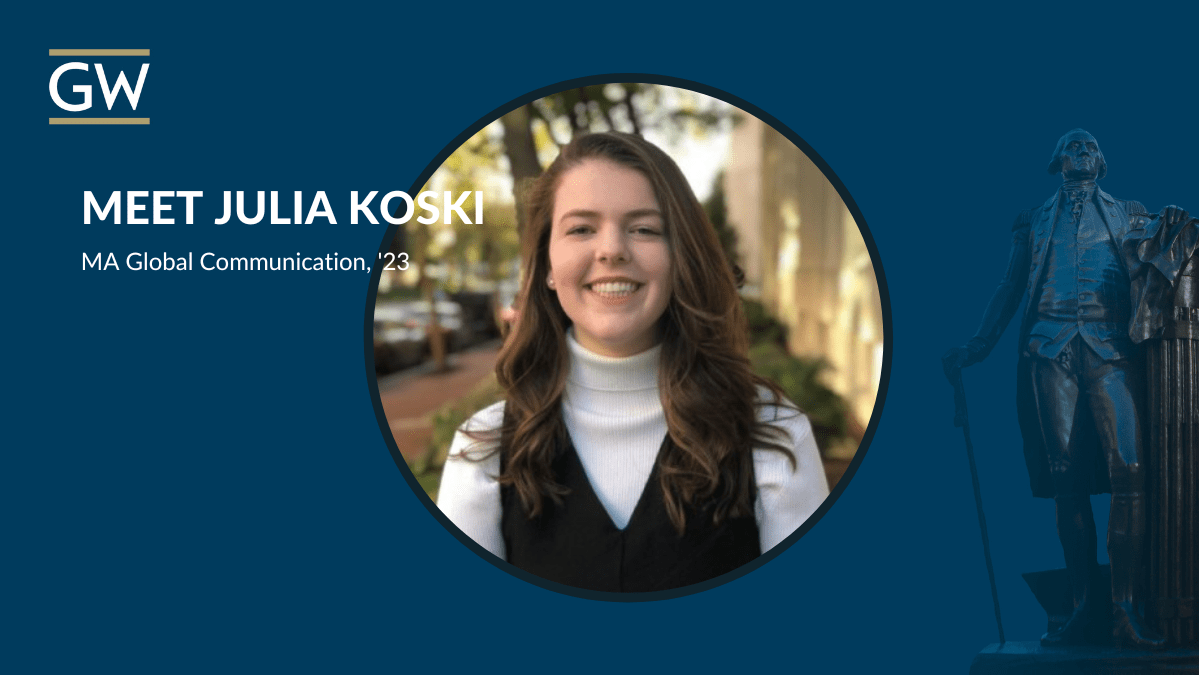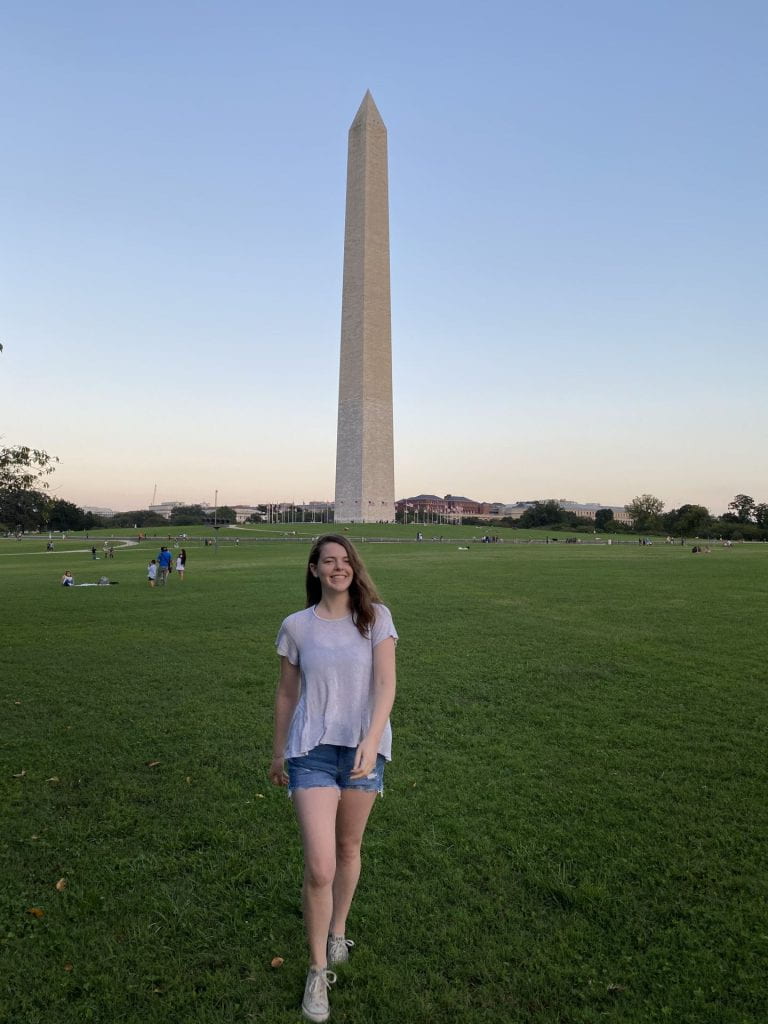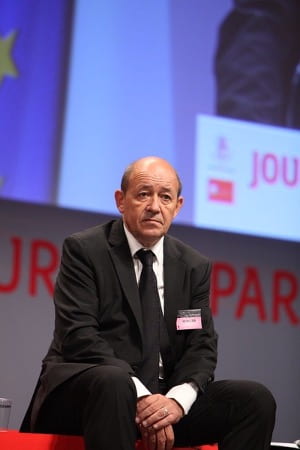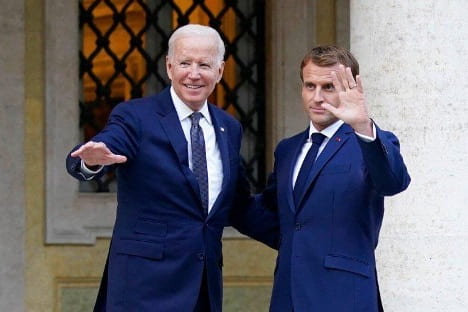By Mohamad Fayaz Yourish, MA Global Communication ’25
1. Can you tell us a bit about your background (where you’re from and/or grew up) and what brought you to GW to pursue a graduate degree in Global Communication?
As a non-traditional student at GW, my background is diverse. After high school, I spent eight years touring and playing in a rocket metal and post-hardcore band, gaining moderate success. However, after the 2016 election, I felt a growing desire to get more politically involved. With the band slowing down, I decided to pursue a political science degree as a way to break out of my small town in South Carolina and make a difference in a larger setting. Juggling full-time work and online undergraduate studies at Arizona State University, I researched potential career paths and discovered the U.S. Foreign Service, particularly the areas of political affairs and public diplomacy, which intrigued me.
I applied for an internship with the State Department and was selected to intern with the consulate in Frankfurt during the spring of 2020. This experience solidified my interest in public diplomacy as I had the opportunity to use my personal background to bridge cultural gaps and build relationships through cultural affairs outreach programs. I also realized my passion for understanding cultures through food and gastronomic diplomacy. In my final year at ASU, I added a communications minor and graduated summa cum laude. When looking for graduate programs, I considered various options related to global communications, intercultural communications, and international and intercultural communications.
What ultimately led me to choose GW was the personal interaction I had with the program director, Dr. William Youmans, during the admitted students day in the spring of 2022. Unlike other programs where I felt a lack of interest in my goals and identity as a student, Dr. Youmans showed genuine interest in me and my aspirations, which drew me towards GW, where the global communications program is housed under the and the Elliott School of International Affairs and the School of Media and Public Affairs. I am now grateful for the decisions I have made and couldn’t be happier with where I am today.
2. What specific courses or projects have you found most impactful so far in your Global Communication program?
My coursework here at GW has been incredibly engaging, covering a wide range of interesting topics. Currently, I am enrolled in a course on global gender policy, where we analyze international agreements and policy documents through a feminist and gendered lens. We critically examine these documents to identify gaps, such as the lack of coverage on LGBTQ issues or the inadequate support for women and children in post-disaster situations. This multidimensional approach has provided me with a solid foundation to draw upon as I was preparing for the Foreign Service Officer Assessment, which I successfully passed.
In terms of projects, there has been a piggyback effect in my academic journey. For instance, in my research design course during my first semester, I worked on a project referred to as the “prospectus.” It involved developing a research paper and designing potential experiments to address a problem. This problem stemmed from my experience standing in line at an anime convention in DC during the summer of 2022. I was intrigued by how exposure to foreign media with accurate cultural depictions could foster positive perceptions and reduce cultural biases.
I explored the potential of using culturally accurate programming to bridge cultural gaps and bring people together in a more inclusive and understanding way, seeing foreign cultures in a positive light rather than as adversaries or unknown entities. This project stemmed from my personal interest in anime and culture, and my desire to understand how they intersect and whether it is possible to eliminate cultural biases through exposure to properly depicted cultural programming.

3. You have recently successfully passed your Foreign Service Officer Assessment, how has your experience at GW helped you achieve that?
This was actually my third attempt at the Foreign Service Officer process, previously known as the Oral Assessment, and my first time making it. My time at GW has been a non-linear journey without a specific course that provided me with a single kernel of knowledge to leverage. Instead, it has been about expanding my thinking and absorbing more knowledge, and then being able to adapt and apply it to different situations. Additionally, I cannot emphasize enough how invaluable it has been to have a public diplomacy scholar like Professor Chris Teal, who is a current Foreign Service Officer, as a resource. Professor Teal has been a massive support in discussing the career path, providing insights on what it looks like, and strategizing how things might unfold throughout the process. While he hasn’t provided me with study materials, being able to bounce ideas off him and draw from his experience has been reassuring and has helped me focus on what I need to learn and how to approach the subject and assessment with more confidence. Having a solid basis to draw from has been extremely helpful in navigating this process.
4. Considering your interest in multiculturalism and understanding different cultures, how has GW provided you with opportunities to connect with individuals from different cultures as part of your academic journey?
I am thoroughly enjoying the multicultural and international environment at GW. Coming from a small town in South Carolina where the population is predominantly white, African American, and Latino/Hispanic, with limited exposure to individuals from other countries, I am thrilled to be able to interact with classmates from Afghanistan, Pakistan, India, Brazil, Colombia, South Korea, Japan, Thailand, and more. Incorporating this international dimension into my education is important to me as I aspire to be a good representative of the United States in my future career as a diplomat. I genuinely enjoy understanding people on a deeper level, recognizing that I have always felt somewhat different from where I come from. Bridging the gap between cultures and gaining a profound understanding of individuals, their personalities, identities, and how their culture influences them, including through food, is a passion of mine. I am particularly fascinated by anthropology and how human society has evolved through food and geography, and I find it incredibly fulfilling to understand people for who they are at their core, irrespective of their origin or background. I am always curious to learn and expand my understanding of different cultures.

5. What advice do you have for future students who are interested in pursuing a Global Communication graduate degree?
If you’re uncertain about a particular decision, my advice would be to go for it. I personally enjoy the flexibility and freedom that the global communications program at GW offers. While there are requirements, such as choosing a concentration, you also have the option to create your own concentration. As long as you can effectively advocate for yourself when communicating with the program director, you can shape your program of study according to your own vision. There will still be core requirements, such as the cornerstone, capstone project, and research methods course, but the rest is up to you to mold in the direction you desire.
One of the unique aspects of the global communications program is that it sits at the intersection of two prominent schools at GW: the Elliott School of International Affairs and the School of Media and Public Affairs. This allows you to draw from both schools and tailor your program to your liking. Personally, I have found this flexibility advantageous when selecting additional courses, such as skills courses from the School of Media and Public Affairs or international affairs courses from global gender policy. It has given me the opportunity to hone in on my specific interests, such as LGBTQ gender and human rights advocacy, and build my own minor within the program. This level of customization is something I did not see in other programs, and it truly sets the global communications program at GW apart.
Matt was interviewed by first-year graduate student Mohamad Fayaz Yourish. Fayaz is also in the Global Communication program working with IPDGC on student engagement.









